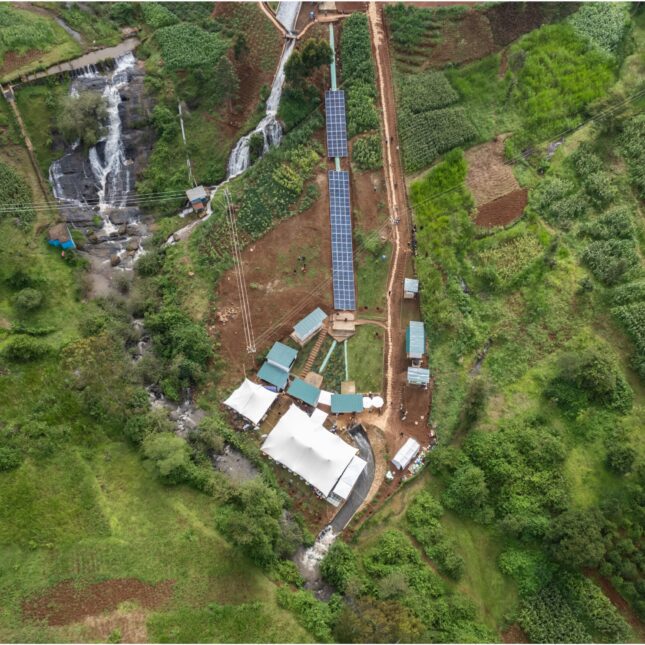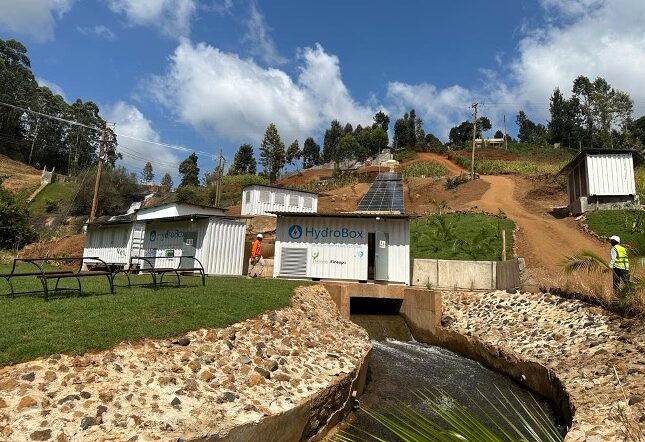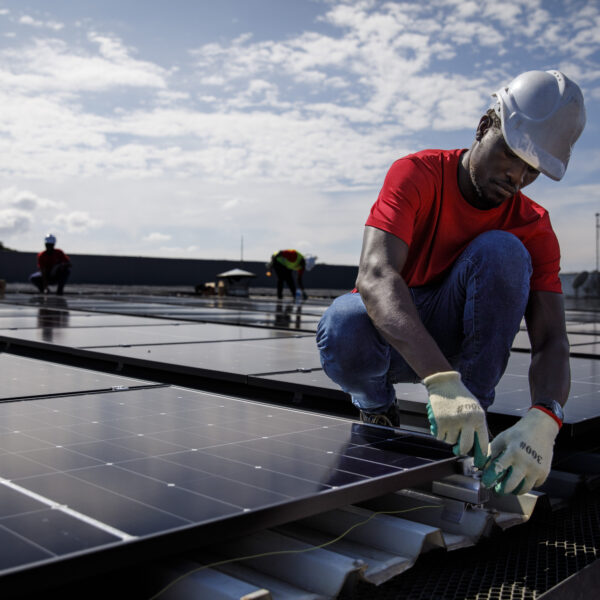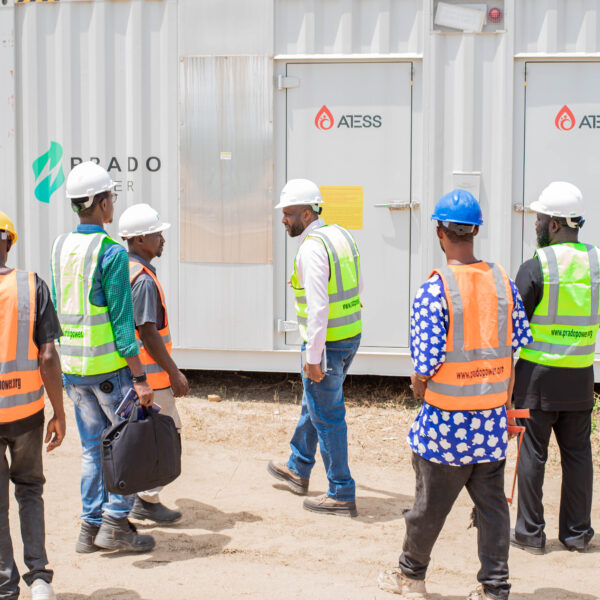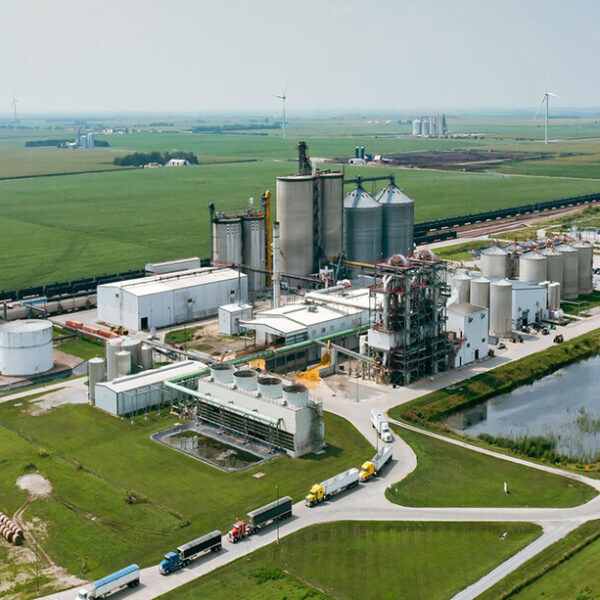Delivering round-the-clock hydropower by the container
Key figures
Expected results
Delivering round-the-clock hydropower by the container
About
HydroBox is the brainchild of two hydropower specialists: Belgian energy entrepreneur Thomas Poelmans and Kenyan John Magiro, who built his first hydropower station from bicycle parts at the age of 15. Together, Poelmans and Magiro developed HydroBox – a power station in a shipping container – to supply electricity to off-grid Kenyan villages. Having already installed five HydroBox stations in Kenya’s Muranga County, they aim to provide electricity to a million Kenyans by 2027.
Although 70% of Kenyans can access electricity, many people in rural areas are still without a supply. This limits opportunities for economic growth and increases dependence on fossil-fuel generators. HydroBox aims to tackle this inequity with an affordable, sustainable and reliable power source designed to be a viable option for rural communities.
The key to HydroBox’s success is that the standardised container is easy to transport and install where needed, and as a small “run-of-the-river” plant there is no need to build a dam. When situated on any small river that flows throughout the year, it generates constant electricity around the clock. Without the need for batteries to store power or a dam to block the river, the cost and environmental impact are kept to a minimum.
Our support
The GET.invest Finance Catalyst has worked with HydroBox for more than two years. It has provided support in three areas that has enabled the enterprise to develop and grow.
Firstly, a GET.invest Finance Catalyst advisor suggested that HydroBox adopt an Anchor–Business–Community (ABC) business model that incorporates a wide customer base. The aim was to make use of surplus electricity, spread financial risk and reduce tariffs for rural communities. In the ABC model, the anchor customer is a large company, such as a tea or coffee factory. These can easily consume 40–60% of the power produced at a given site, ensuring a stable revenue to cover investment costs. The rest of the electricity is used by small businesses, schools and hospitals, and household users in the community. GET.invest further advised that any surplus energy left could be sold to flexible users such as e-mobility firms that need to charge electric batteries, and refrigeration companies.
GET.invest’s second area of support was in finding finance. The advisor put HydroBox in touch with the crowdfunding company Bettervest, which successfully closed multiple deals totaling € 835 thousand, enabling the building of its flagship hydropower plant in Gitugu. A co-advisor also helped HydroBox produce sophisticated finance models to apply for finance from DFIs and other institutional investors.
Thirdly, GET.invest has provided market support to HydroBox, introducing the company to potential commercial clients. Many of these are large industries that can act as anchor customers, providing a substantial and steady income to HydroBox.
The outcome
Previously, HydroBox supplied electricity to mainly local households and small businesses in the area. With input from GET.invest, Hydrobox started applying the “ABC model” where it supplies power to Anchor customers (taking 40-60% of the power production), Businesses, and Consumers (household customers).
The higher income obtained from commercial clients has enabled HydroBox to provide affordable electricity tariffs for household customers and community assets such as schools and hospitals. It has also enabled the company to grow its operations, creating more than 30 permanent jobs. Economic benefits extend to the wider community too: an affordable and reliable electricity supply in the villages served by HydroBox has enabled small businesses to expand and take on additional staff.
In 2023, the GET.invest Finance Catalyst continued working with HydroBox during its business expansion to new countries and new areas of Kenya. With this support, HydroBox developed a pipeline of 2.3 MW at eight sites in Kenya, to be commissioned by the end of 2025.
Disclaimer: This story was last updated in September 2023.



